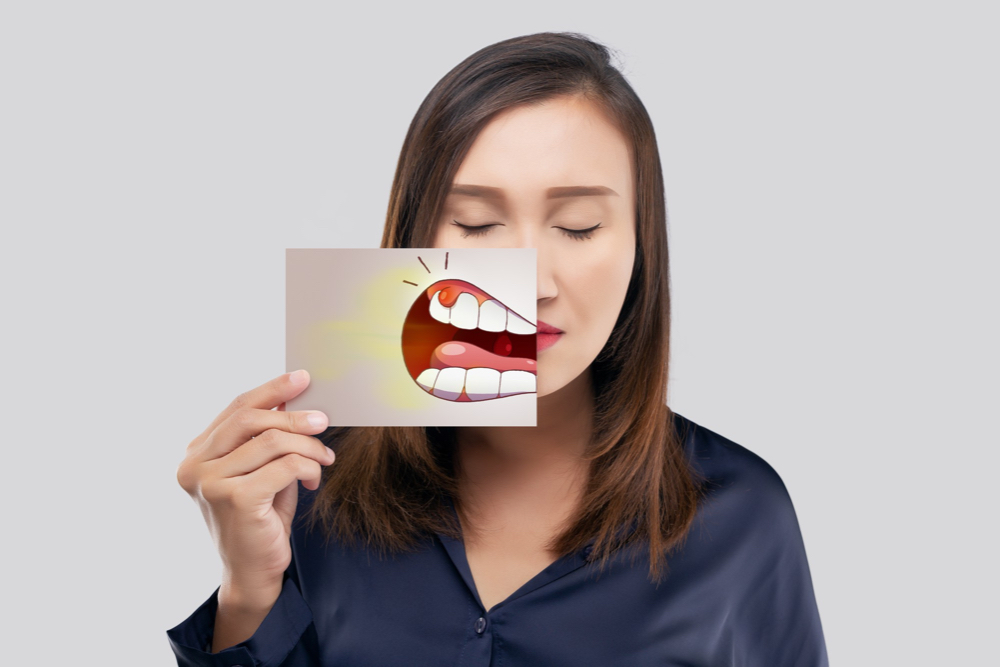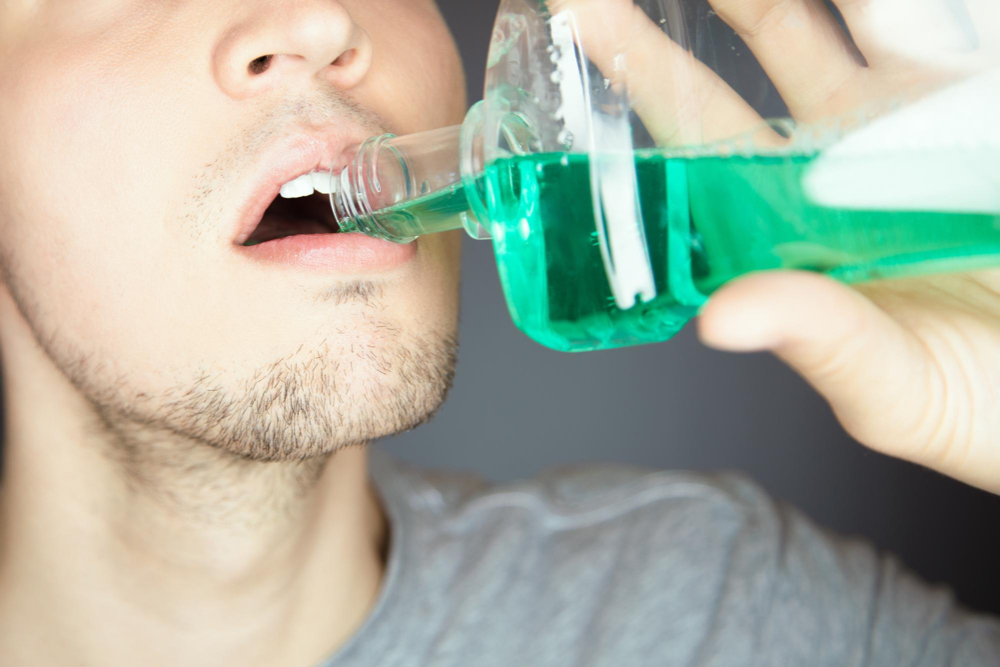Unpleasant for oneself and unpleasant for others, bad breath is not a disease in itself, although it does have a medical name: halitosis. When it occurs from time to time, it is not dramatic, but frequent or persistent halitosis can quickly become an obstacle to social life and self-confidence.
Your dentist on the South Shore in Boucherville, the Centre Dentaire & D’implantologie Boucherville, can help you identify the causes of your bad breath and how best to address it.
Oral Causes
Identifying the cause of your bad breath is the first step in remedying it. Unsurprisingly, the cause most often comes from your mouth itself. The odor itself is caused by so-called anaerobic bacteria, which produce volatile sulfur compounds (VSCs).
This can of course occur in individuals with poor oral habits. Dental and periodontal disease can also cause foul odors, as can the presence of lesions, ulcers, etc.
Lack of saliva causing dry mouth can also cause bad breath as well as other conditions such as cavities.
In short, a mouth that is not in good condition will make you feel it (literally). To find out for sure, don’t hesitate to share your concerns with your dentist.
Extra-Oral Causes
In addition to oral health, other factors can lead to unpleasant breath. These include medications that dry out the mouth, such as antidepressants, anti-anxiety drugs or antihistamines.
Digestive and respiratory disorders as well as diseases such as diabetes can also be the cause. Bad breath can sometimes be a warning sign, and your dentist may recommend that you see a doctor.
Finally, your habits affect the way your mouth smells, such as
- Alcohol
- Smoking
- Coffee
- Onions
- Garlic
- Many other foods
How to Have A Fresher Breath
Often the answer lies in the cause. Oral hygiene is the first factor, so before looking further, start by adopting good habits: brush your teeth two or three times a day and don’t forget to floss.
Brushing your tongue also helps to get rid of odors, so don’t neglect it! You may also want to supplement your routine with an antiseptic mouthwash.

If that’s not enough, a checkup at the dentist’s may help you identify the source of the problem. You may have a cavity or gum disease, and treatment may help eliminate the lingering odor. If the cause is not in your mouth, a medical examination may be advised.
Of course, we won’t prescribe that you stop consuming onions, coffee or cheese, but keep in mind that these foods can cause temporary bad breath.
It is of course recommended that you quit smoking, as it has several consequences on your oral health. Not only does it create dry mouth, but it also promotes the growth of volatile sulfur compounds.
Chewing gum or drops or using sprays will of course help to cover up bad breath. In fact, chewing gum stimulates saliva formation and helps with gastroesophageal reflux.
Staying hydrated is another way to fight halitosis. Drink water to avoid dry mouth and keep your breath fresh all day long, in addition to taking advantage of the many benefits of water.
It’s perfectly normal to have bad breath in the morning! During the night, your body rests and so does your salivary glands, and consequently your mouth is drier.
This is one of the reasons why you should brush your teeth before bedtime: your mouth is more vulnerable to cavities at night. To reduce morning breath, drinking a glass of water before bedtime can limit dryness.
Bad breath is embarrassing, but you don’t have to feel uncomfortable discussing it with your dentist. If you notice that your mouth often smells bad regardless of the foods you eat, it’s important to seek help to identify the causes.
At the Centre Dentaire & D’implantologie Boucherville, we take all your concerns seriously. To identify the problem at its source, make an appointment for an examination and cleaning!

